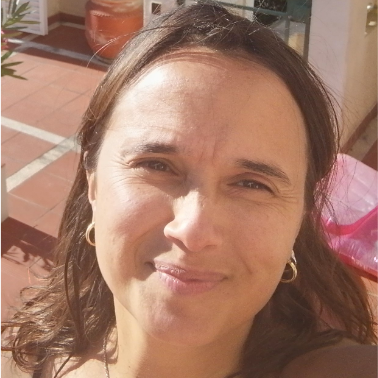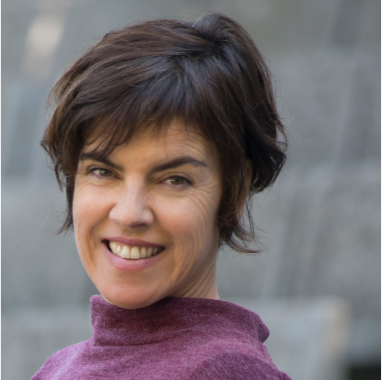The session shares insights from different perspectives and suggests how we might begin positive and open conversations about intimacy and sex. It also underlines the need for greater awareness about intimacy and sex after stroke

Doug Youngson
Doug Youngson – is a Learning and Development Trainer with the Stroke Association, UK. He has a Masters in Person-centred Psychotherapy and 12 years’ experience of supporting people affected by stroke and brain injury, through the Stroke Helpline and his own counselling practice.
Doug’s current work focusses on training staff in the skills needed to have difficult conversations. He is passionate about rebuilding lives after stroke and believes that conversations about sex are an important part of this.
His presentation on how to develop confidence and practical tips on how to have meaningful conversations for both healthcare professionals and stroke survivors can be viewed at 18:33 in the video.
Doug Youngson Q&A:
Do you know of any published resources that are accessible to people with aphasia?
The Stroke Association’s My Stroke Guide tool has accessible articles and videos with information about sex and relationships:
https://mystrokeguide.com/advice-and-information/physical/sex/advice
Different Strokes (a UK charity for younger stroke survivors) has a booklet and series of videos:
https://differentstrokes.co.uk/stroke-information/sex-and-relationships/
How do we answer questions about positions and physical difficulty after stroke?
To manage limited mobility and spasticity, it is generally suggested that stroke survivors lie on the affected side. There are specific suggestions for positions in articles like this one:
https://pubmed.ncbi.nlm.nih.gov/27611652/
We can encourage people to experiment and find out what works for them, which can be fun way to bond with each other.
Do you have any suggestions for stroke survivors who are older and severely affected by the stroke and may see that this is the end of a having relationships - either companionship or intimate?
We can connect with our loved ones in lots of different ways, sometimes without words or with simple actions. Try to be creative and experiment to find new things that help you feel like a couple. This may take persistence and you may feel grief for things you have lost, so speak to your doctor or stroke team about emotional support that is available. It may help to think about things that brought you together. For example, if you both have a love of music, is there a way you can still enjoy that together?
If someone has their stroke during sex, they can be understandably anxious about exploring sex again...any advice on how to overcome this?
Talk to your doctor for reassurance that you are doing everything possible to control your risk of stroke. The Royal College of Physicians (UK) guidelines state that stroke survivors can be reassured that sex is not contraindicated after a stroke and is extremely unlikely to cause another stroke. Consider making a decision not to have sex at first. You can build up to this with other forms of intimacy at a pace you feel comfortable with. Some stroke survivors have spoken about the need to balance carefulness with persistence, so do keep trying.

Diana Wong Ramos
Diana Wong Ramos – Diana Wong Ramos was 34 years old and working as a journalist-editor for a magazine in Portugal when she had a Cerebral Venous Thrombosis stroke.
Diana could not walk but thanks to exhaustive work with a multidisciplinary rehabilitation team she began to regain some mobility and independence. Diana’s life has changed to adapt to her new circumstances and she has a special interest in Patient Advocacy and Patient Engagement and was involved in the creation of the first Portuguese association of stroke survivors (Portugal AVC – Union of Survivors, Family and Friends www.portugalavc.pt and participated in the redesign of the Stroke Action Plan for Europe 2018-2030.
Watch the interview where Dianna discusses her story, focusing on wellbeing and healthy sexuality after stroke, and how healthcare professionals and stroke survivors can start this conversation. This can be viewed at 33:50.
Diana Wong Ramos Q&A:
How fast after stroke (after month, half a year) can patient start intimate life and what does it depend on?
I think there is no perfect timing… The most important thing is that there is desire on both sides and that the limits (if any!) of each one be respected. In my case, making love to my husband again contributed to increase my confidence in rehabilitation and, without a doubt, it made me feel like a woman, sexually attractive, despite the sequels of stroke.
Looking back to when you had your stroke - are any resources or conversations with professionals that you think would have been helpful?
After suffering a stroke my mobility was very compromised, my sensitivity too and the fear of suffering a new stroke was always latent. I think it would have been important to be accompanied by a sex therapist, just as I was by a psychologist or a nutritionist. Sexual health is often underestimated! And, in my opinion, this should not happen, not least because the healthy balance of our mental health is closely linked to the degree of satisfaction we derive from our sex life. That is my personal opinion!
Would you have felt comfortable being asked questions about sex and intimacy while in your early stages of inpatient rehabilitation?
In the acute phase of stroke, talking about intimacy or sex might be unreasonable. But during the long months that I was hospitalised in the rehabilitation clinic, with intensive sessions of physiotherapy, occupational therapy, psychology and activities of daily living, it would have been very positive to speak with a sex therapist about my fears… When the doubts are many and the embarrassment does not let us talk sincerely, Google can be the only source of answers. Perhaps not always the most suitable ones.
I am at the stage where I do not want to explain what makes me feel less of a woman. How do you get past this stage and is it wrong if you keep it to yourself or stay single to avoid this?
Intimacy does not necessarily involve another person … And if it is true that exchanging caresses with those we like is very pleasant, masturbation can also be very satisfying. There is no better feeling than to feel good about ourselves, with all our faults and virtues. If we do not like ourselves, we are unlikely to empathise with each other … Alone or with a partner, the most important thing is to feel happy with the choice you make.

Ana Carvalheira
Dr Ana Carvalheira – has been a psychotherapist and sex therapist since 1996. She is Assistant Professor at ISPA (University Institute of Psychological Science) and researcher at William James Center for Research at IPSA.
Ana is a former President of the Portuguese Society of Clinical Sexology and associate member of the International Academy of Sex Research.
The full conversation between Diana and Ana can be viewed here:
INSERT YOUTUBE VIDEO HERE